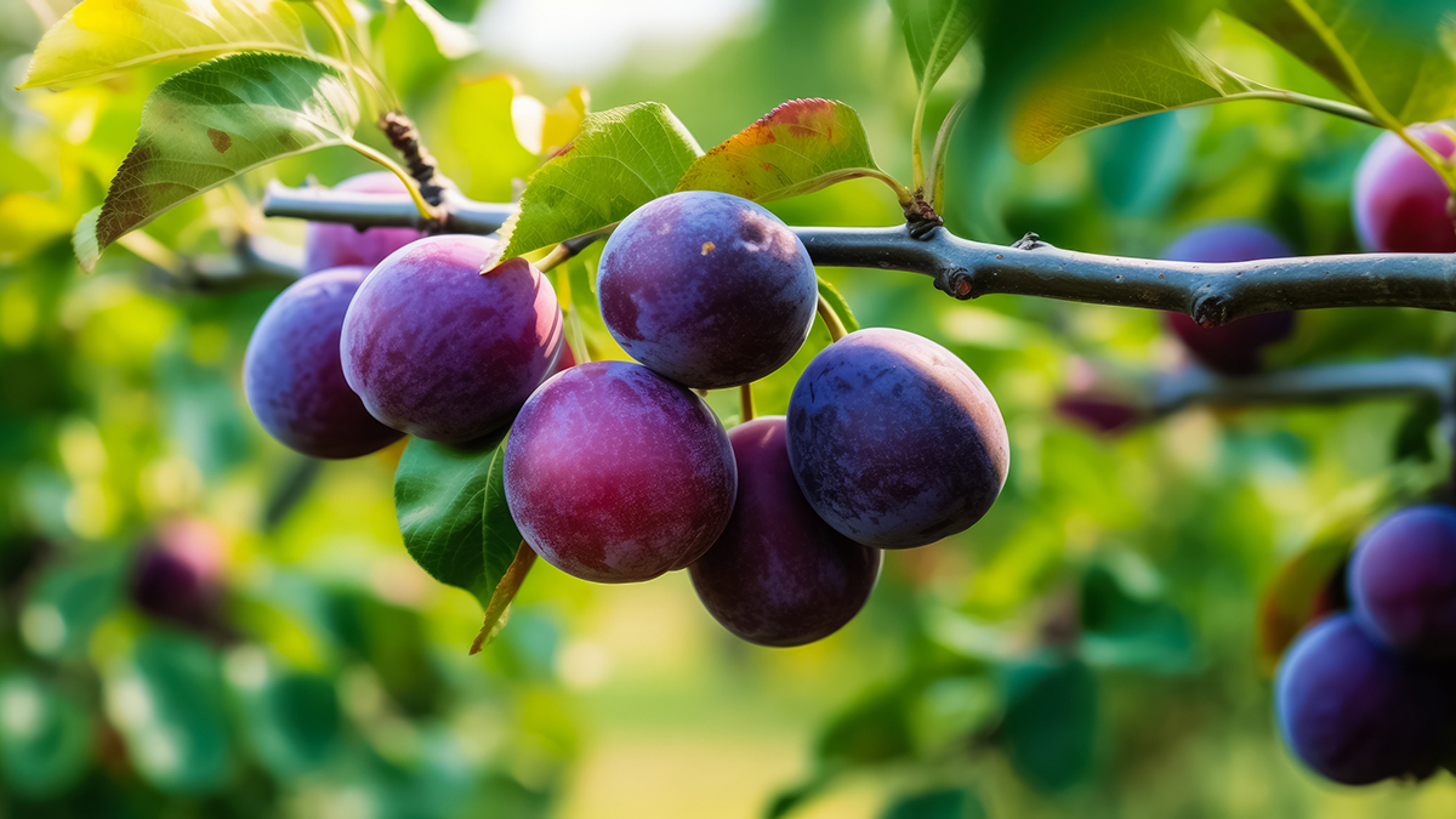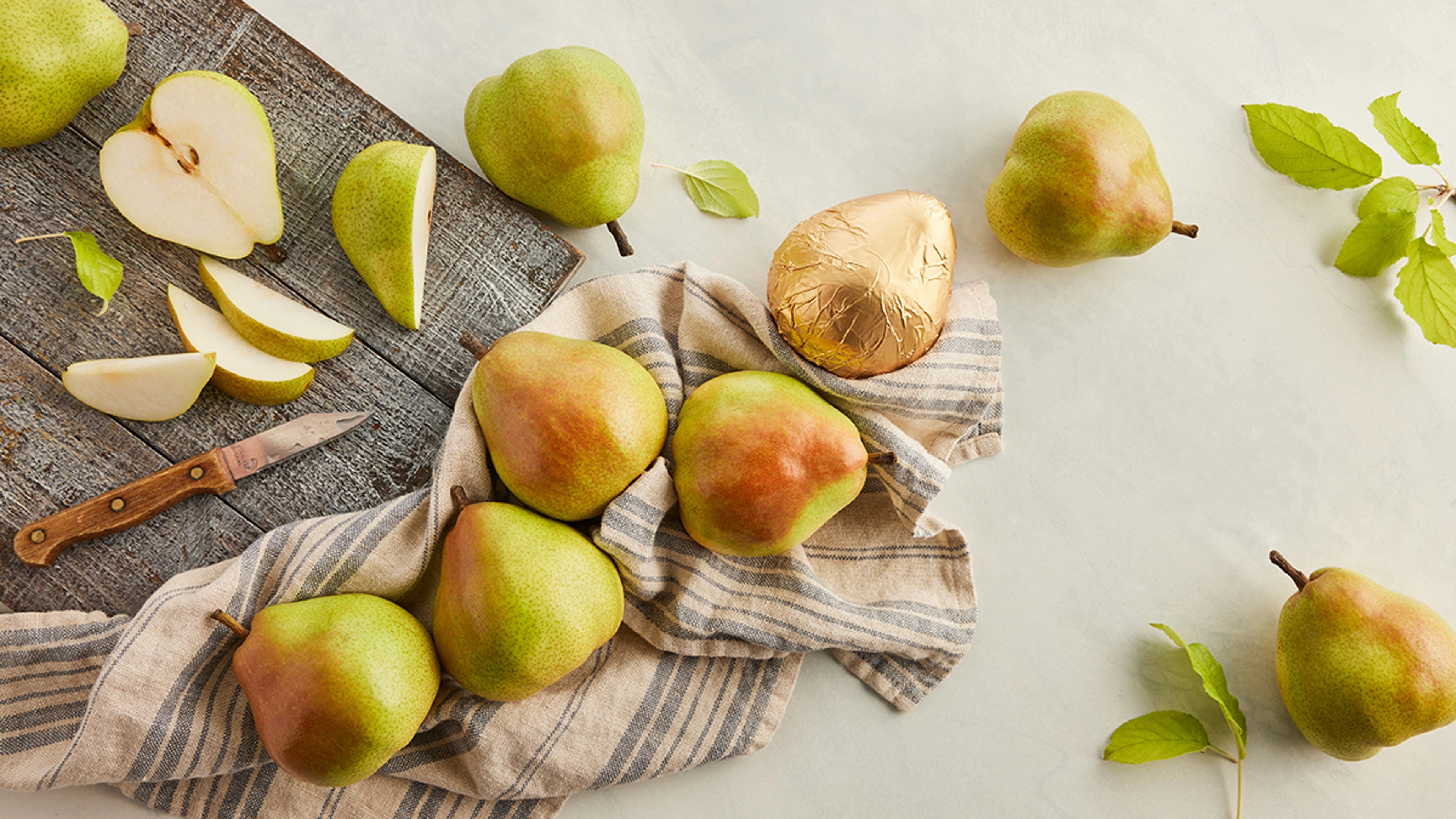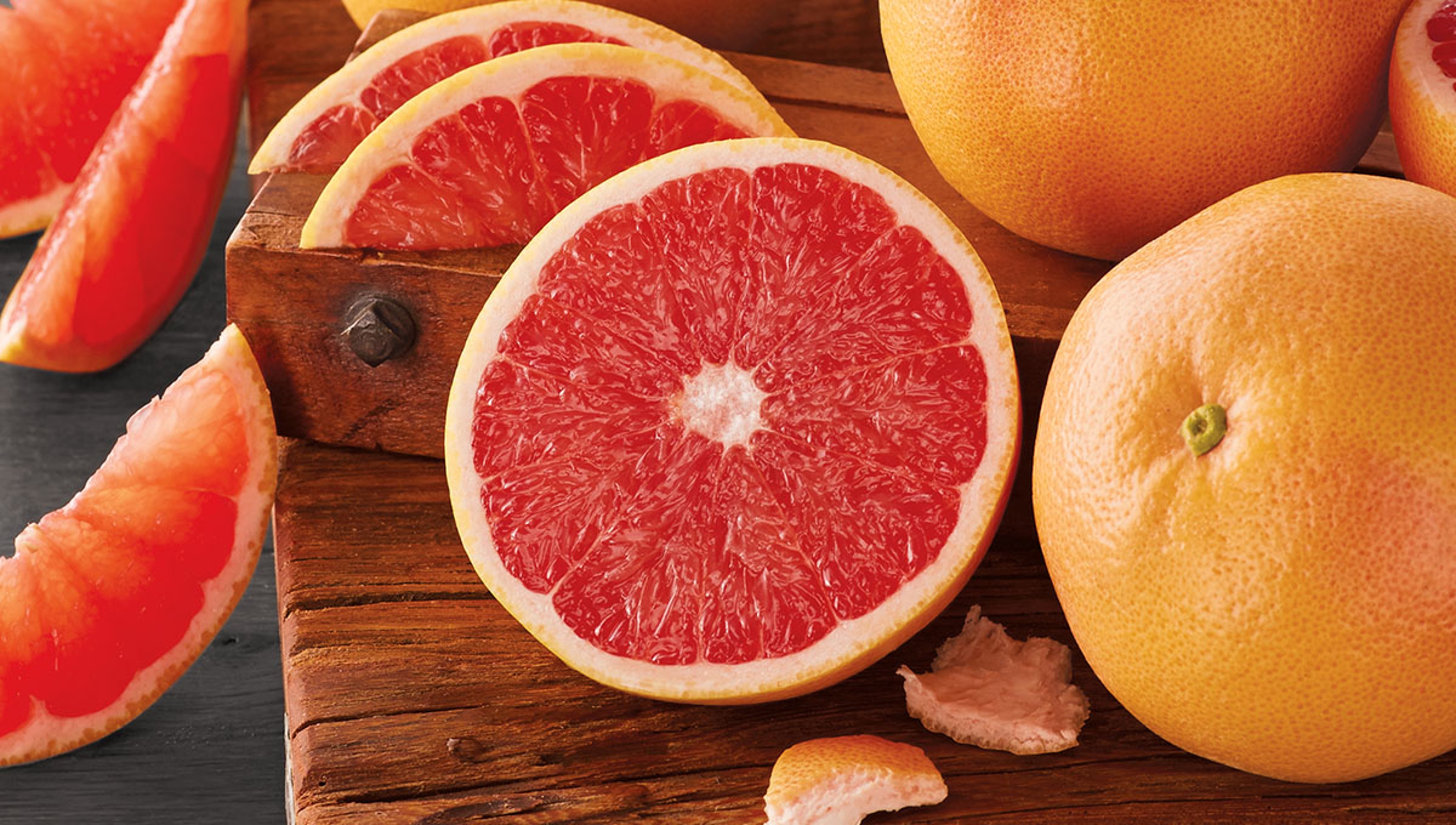A Guide to Plums: Everything You Wanted to Know About Plums but Were Afraid to Ask!
Plums can be either sweet or sour, but regardless of how they taste, they're always healthy and delicious — and rich with history!
Aug 12, 2023
Plums are quite the enigma. They're in season during summer but give off fall and winter vibes. However, if you're able to get a sweet, juicy one, heck, they're worth savoring throughout the entire year.
We hope you'll savor this guide we put together just for you.
What type of fruit are plums?
Plums are in the stone fruit family — meaning they possess a single seed at their core — and often get together for the holidays! They are also yummy cousins to peaches, nectarines, and apricots, as well as apples and pears.

What kind of name is "plum?"
The word comes from ye olde English “plume." As wildly popular linguistic history tells us, it was shortened by dessert-diggin' Brits in 1780 to the current spelling meaning “something desirable, or choicest part" in their tasty pudding.
What are its scientific names?
European prunes are prunus domestica, which oddly does not mean they tidy up after themselves. Asian strains go by the exotic, scientific nom de plumes prunus salicina and prunus simonii.
Will eating a plum help me keep my composure?
Ah, you're thinking of the word "aplomb," which means "self-confidence or assurance, especially when in a demanding situation." Although plums do symbolize perseverance and hope and beauty thriving in adverse circumstances, so maybe eating a plum before that big meeting will help. Remember: Poise counts.
Where do plums come from?
They were first spotted popping up on the tables of Chinese and Japanese foodies about 2,500 years ago. Approximately 500 years later, their European cousins began sprucing up the palates of people in Eastern Europe.
So, what's the difference between European and Asian plums?
European plums are harder and grow better in cool climates, blossom later in the season (mid- to late summer through October), and have firmer flesh, making them firm enough to be dried. Asian plums have an earlier blossoming period and are not plum picks for drying.
MORE: 10 Things You Didn't Know About Plums

Where do plums grow in the United States?
These bad boys hang out everywhere in the U.S. these days due to their ability to adapt to different and changing climates. The top producing state is California, which is where Harry & David gets its plums from — the Central Valley, to be precise. And, even more precisely, an orchard 30 minutes southeast of Fresno that's been growing the juiciest fruit since 1918!
How many types of plums are there?
Over 40. Some of the more popular ones are Mirabelle, Santa Rosa, Damson, and Black Kats, which is what Harry & David ships out in September as part of its Fruit-of-the-Month Club.
Black Kats have a dark skin color, and the inner flesh is a golden yellow. They tend to be slightly larger than the average plum and also have higher sugars, averaging about 20 brix— brix is a measure of sugar — according to Jane Hunts, fruit merchandiser for the Oregon-based gifting company.
Are sugar plum fairies real?
Go ask your mother.
What's the deal with pluots?
They are hybrids, a combination of a plum and an apricot, and were created by taking the rootstock of one tree and grafting it to another. In simpler terms: A dude used science to make this fruit.
What colors do plums come in?
Plum skin can be the deep shade of color that gave us the word for the color plum, Hunts says, but it can also be yellow, green, red, or black. The flesh inside can be dark red, purple, or yellow.
How are plums related to prunes?
Prunes are simply dried plums. But there's one important thing to know: “Not all plums can be prunes — but all prunes are plums!" reveals Kiaran Locy, director of brand and industry communications for the California Prune Board.
When are plums in season?
May to October.
How do you pick a plum?
Ripe plums should feel heavy and firm — like your high school principal. The flower end (opposite the stem) should have a little give when gently pressed. Once you've gotten in touch with your plum pick, give it a whiff. If it makes you swoon, take it home.
What's the best way to store and ripen a plum to perfection?
Plums are very particular. When putting them away, make sure they are stored in a breathable, loosely closed paper bag. Plastic bags suffocate the pesky little fellas, and nobody wants to deal with that kind of unpleasantness.
To speed up the ripening process, stick another fruit like a banana or apple in the bag with your plums. The additional ethylene gas they produce will yield ripe, juicy fruit even faster.
But make sure you don't shove an unripened plum in the refrigerator too soon — the cold will steal its flavor away.
What are some unparalleled plum pairings?
According to plum professional Locy, “the creamy texture of cheeses, salty crunch of nuts and crackers, and briny notes of olives all pair incredibly well with plums for umami flavors. The natural sweetness of plums is a great addition to pork or duck, and they're a classic addition to dishes like Chicken Marbella. On the sweet side, plums work well in spiced cakes and chocolate batters."
.svg?q=70&width=384&auto=webp)





















